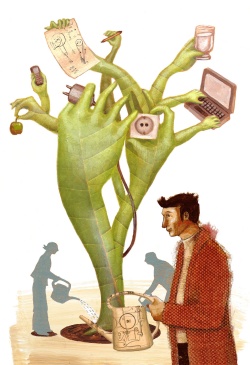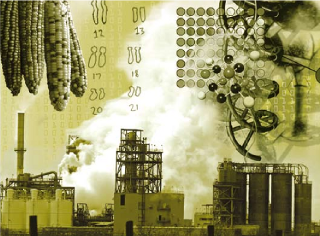 The following paper was written for the Proceedings of the 6th Annual Open Knowledge Conference (OKCon 2011) which took place about a month before in Berlin. It is also available in PDF format.
The following paper was written for the Proceedings of the 6th Annual Open Knowledge Conference (OKCon 2011) which took place about a month before in Berlin. It is also available in PDF format.
Abstract
The free software and free culture movements have radically changed the ways of producing software and knowledge goods. In many cases, participation in such project is benefit-driven rather than profit-driven. Participants get involved in order to realize some practical or social benefit, not because of monetary gains. Another difference from market- and firm-based production is that peer production is non-hierarchical: people voluntarily cooperate as peers; there are no fixed employer/employee or client/contractor relationships. And peer production is based on commons: goods which are jointly developed and maintained by a community and which are shared according to community-defined rules.
Peer production is not just about producing knowledge: Hackerspaces and Fab Labs are the first forerunners of a commons-based production infrastructure. While commons-based peer production reaches beyond capitalism, the preconditions of its development are created by capitalism itself. The paradoxical relationship of capitalism to human labor leads to developments that might make the concept of labor (as we know it today) obsolete, and with it capitalism itself.


 1. Wenn wir an Arbeit und Produktion denken, sehen wir Peers, die Dateien verteilen, Beiträge zu Projekten leisten, auf Anstöße reagieren. Wir ärgern uns über die Ausbeutung der Arbeitenden und die Kapitalisierung der Arbeit.
1. Wenn wir an Arbeit und Produktion denken, sehen wir Peers, die Dateien verteilen, Beiträge zu Projekten leisten, auf Anstöße reagieren. Wir ärgern uns über die Ausbeutung der Arbeitenden und die Kapitalisierung der Arbeit. [
[ In der neuen Kolumne
In der neuen Kolumne 